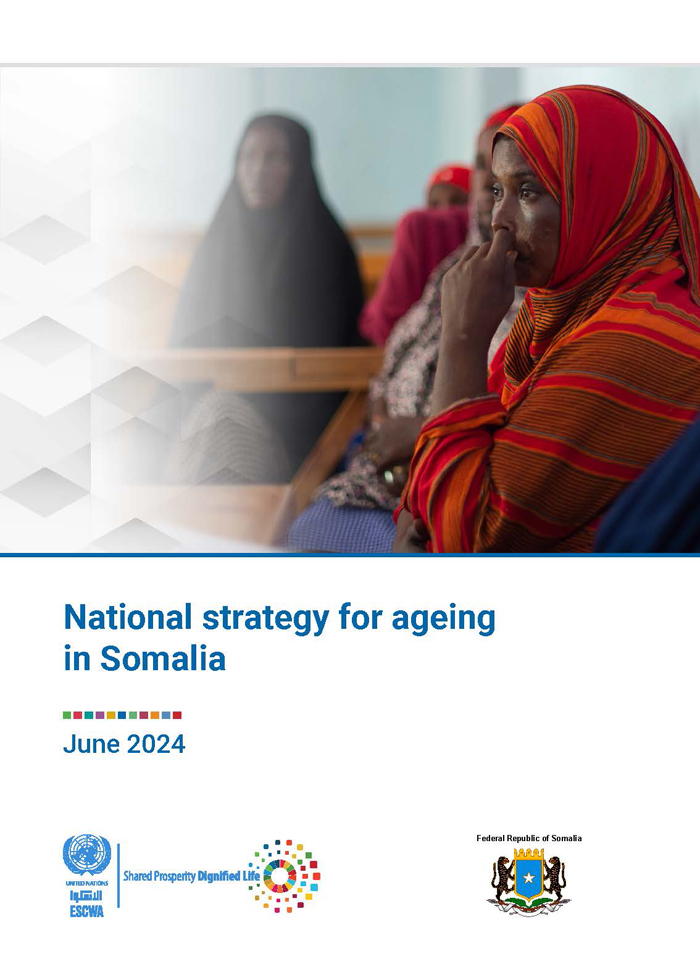ESCWA Publication: E/ESCWA/SD/2009/Technical Paper.5
Country: Arab region
Publication Type: Reports & studies
Cluster: Statistics, Information Society and Technology
Focus Area: 2030 Agenda, Statistics
Initiatives: Arab information society
SDGs: Goal 11: Sustainable Cities and Communities
Keywords: Arab countries, Education, Employment, Empowerment, Gender equality, Health statistics, Hunger, Maternal mortality, Poverty, Reproductive health, Social statistics, Statistical data, Development indicators
Charting the progress of the Millennium Development Goals in the Arab region: A statistical portrait, 2009
January 2011
The report sets out a comparison of subnational, national, subregional and regional trends, providing policymakers and planners with insight, and serving as a source of information to stimulate regional cooperation opportunities that support member countries in their efforts to achieve the MDGs.
Goal 1: Eradicate extreme poverty and hunger
Table 1.1: Population below 1.25$, 2$ (PPP) per day
Table 1.2: Population below national poverty line
Table 1.3: Poverty gap ratio
Table 1.4: Share of poorest quintile in national income or consumption
Table 1.5: Growth rate of GDP per person employed
Table 1.6: Employment-to-population ratio
Table 1.7: Proportion of own account and contributing family workers in total employment
Table 1.8: Prevalence of underweight (moderate and severe)
Table 1.9: Undernourished population
Goal 2: Achieve universal primary education
Table 2.1: Net enrolment ratio in primary education
Table 2.2: Proportion of pupils starting grade 1 who reach grade 5
Table 2.3: Literacy rate of 15-24 year-olds
Goal 3: Promote gender equality and empower women
Table 3.1: GPI in Primary, Secondary, and Tertiary level enrolment
Table 3.2: Share of women in wage employment in the non-agricultural sector
Table 3.3: Seats held by women in national parliament
Goal 4: Reduce child mortality
Table 4.1: Under-five mortality rate
Table 4.2: Infant mortality rate
Table 4.3: Children 1 year-old immunized against measles
Goal 5: Improve maternal health
Table 5.1: Maternal mortality ratio
Table 5.2: Proportion of births attended by skilled health personnel
Table 5.3: Contraceptive prevalence rate (CPR)
Table 5.4: Adolescent birth rate
Table 5.5: Antenatal care coverage for at least one visit
Table 5.6: Unmet need for family planning
Goal 6: Combat HIV/AIDS, malaria and other diseases
Table 6.1: Death rate associated with tuberculosis
Goal 7: Ensure environmental sustainability
Table 7.1: Land area covered by forest
Table 7.2: Carbon dioxide emissions per capita
Table 7.3: Consumption of all ozone-depleting substances
Table 7.4: Proportion of total water resources used
Table 7.5: Proportion of population with sustainable access to an improved water source
Table 7.6: Proportion of population with access to improved sanitation
Goal 8: Develop a global partnership for development
Table 8.1: Telephone lines, cellular subscribers, and Internet users Per 100 population
Related content
2030 Agenda
, Statistics
,
The report sets out a comparison of subnational, national, subregional and regional trends, providing policymakers and planners with insight, and serving as a source of information to stimulate regional cooperation opportunities that support member countries in their efforts to achieve the MDGs.
Goal 1: Eradicate extreme poverty and hunger
Table 1.1: Population below 1.25$, 2$ (PPP) per day
Table 1.2: Population below national poverty line
Table 1.3: Poverty gap ratio
Table 1.4: Share of poorest quintile in national income or consumption
Table 1.5: Growth rate of GDP per person employed
Table 1.6: Employment-to-population ratio
Table 1.7: Proportion of own account and contributing family workers in total employment
Table 1.8: Prevalence of underweight (moderate and severe)
Table 1.9: Undernourished population
Goal 2: Achieve universal primary education
Table 2.1: Net enrolment ratio in primary education
Table 2.2: Proportion of pupils starting grade 1 who reach grade 5
Table 2.3: Literacy rate of 15-24 year-olds
Goal 3: Promote gender equality and empower women
Table 3.1: GPI in Primary, Secondary, and Tertiary level enrolment
Table 3.2: Share of women in wage employment in the non-agricultural sector
Table 3.3: Seats held by women in national parliament
Goal 4: Reduce child mortality
Table 4.1: Under-five mortality rate
Table 4.2: Infant mortality rate
Table 4.3: Children 1 year-old immunized against measles
Goal 5: Improve maternal health
Table 5.1: Maternal mortality ratio
Table 5.2: Proportion of births attended by skilled health personnel
Table 5.3: Contraceptive prevalence rate (CPR)
Table 5.4: Adolescent birth rate
Table 5.5: Antenatal care coverage for at least one visit
Table 5.6: Unmet need for family planning
Goal 6: Combat HIV/AIDS, malaria and other diseases
Table 6.1: Death rate associated with tuberculosis
Goal 7: Ensure environmental sustainability
Table 7.1: Land area covered by forest
Table 7.2: Carbon dioxide emissions per capita
Table 7.3: Consumption of all ozone-depleting substances
Table 7.4: Proportion of total water resources used
Table 7.5: Proportion of population with sustainable access to an improved water source
Table 7.6: Proportion of population with access to improved sanitation
Goal 8: Develop a global partnership for development
Table 8.1: Telephone lines, cellular subscribers, and Internet users Per 100 population


